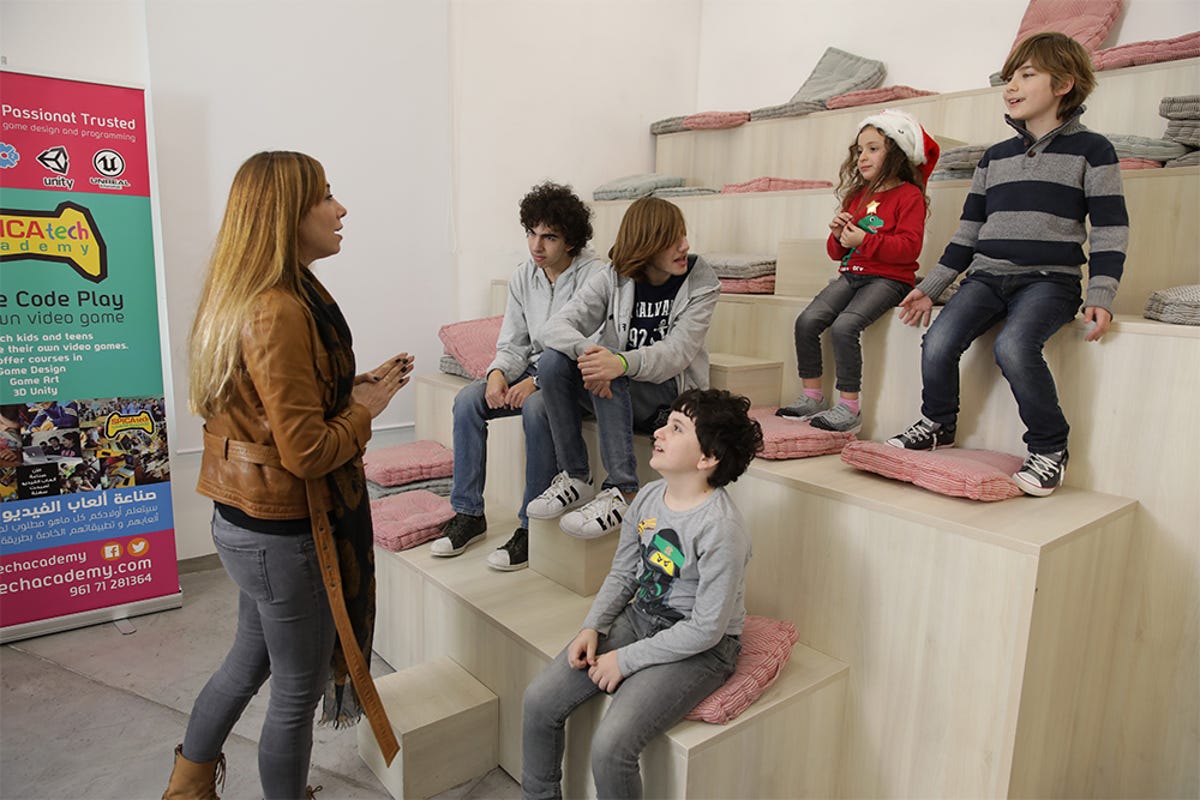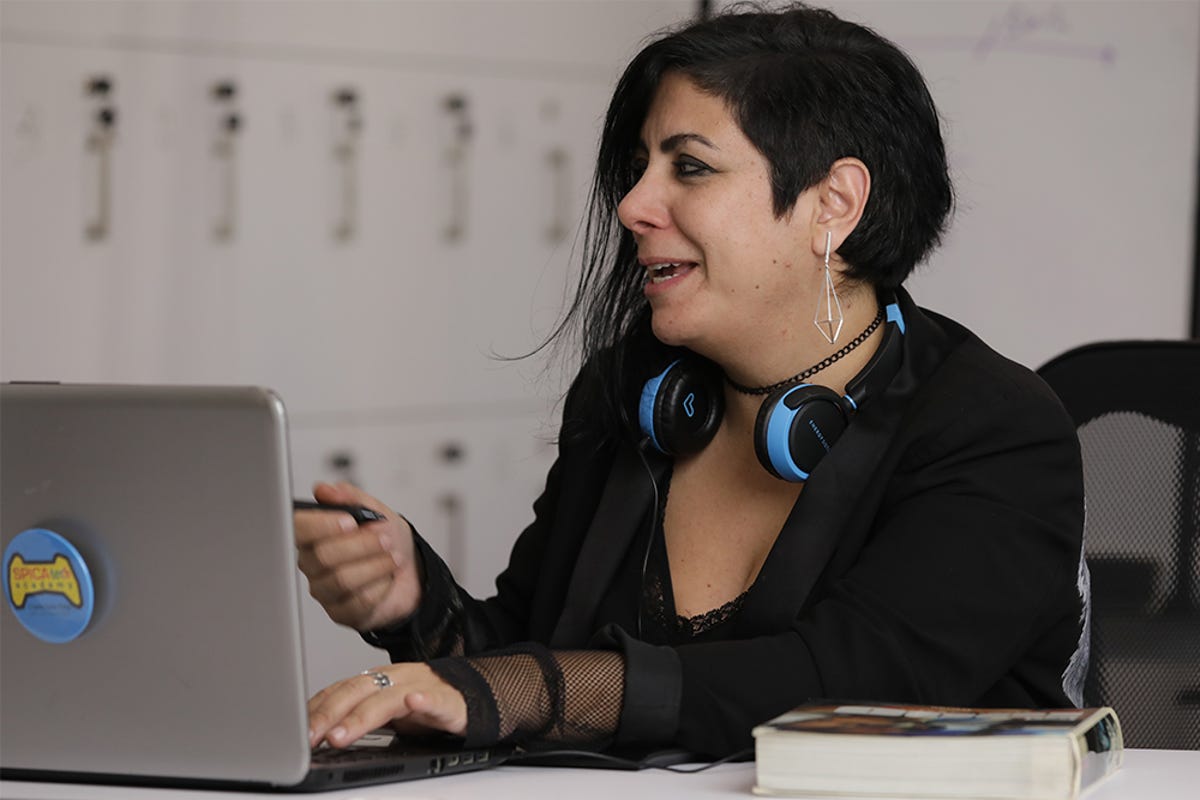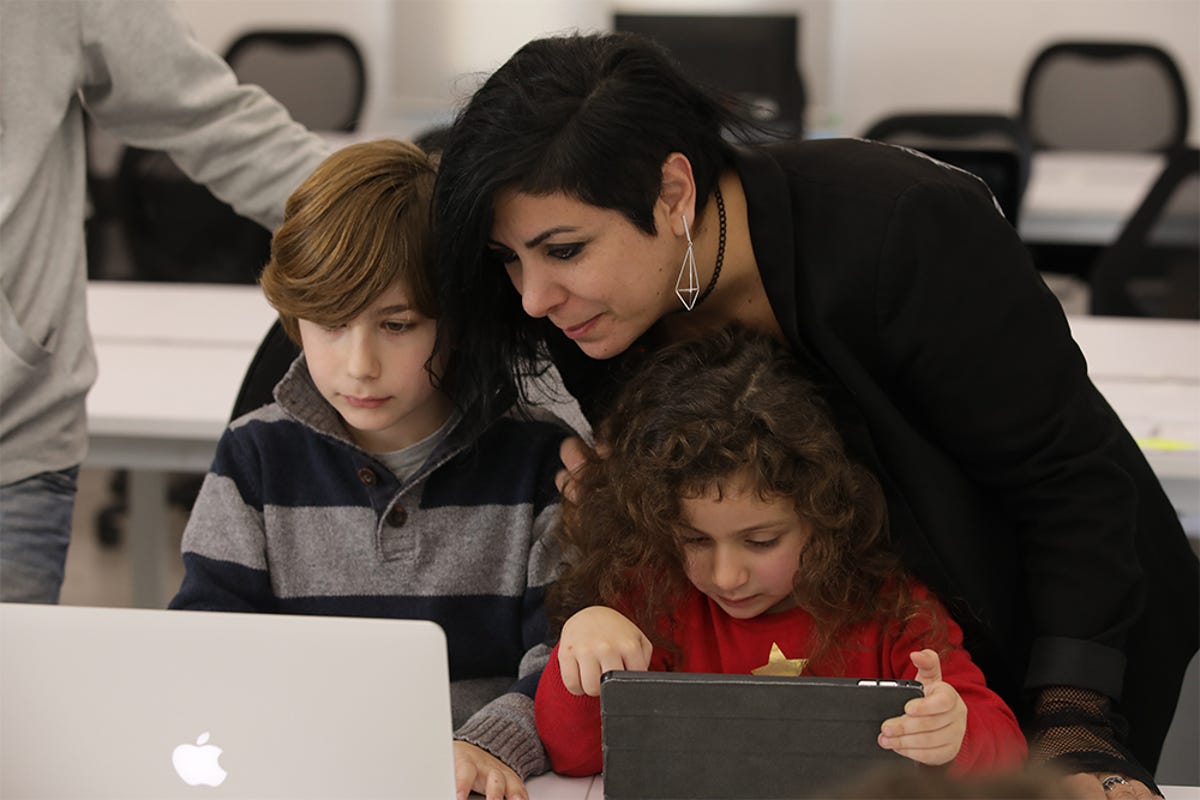Fellow Portrait
Reine Abbas
Spica Tech
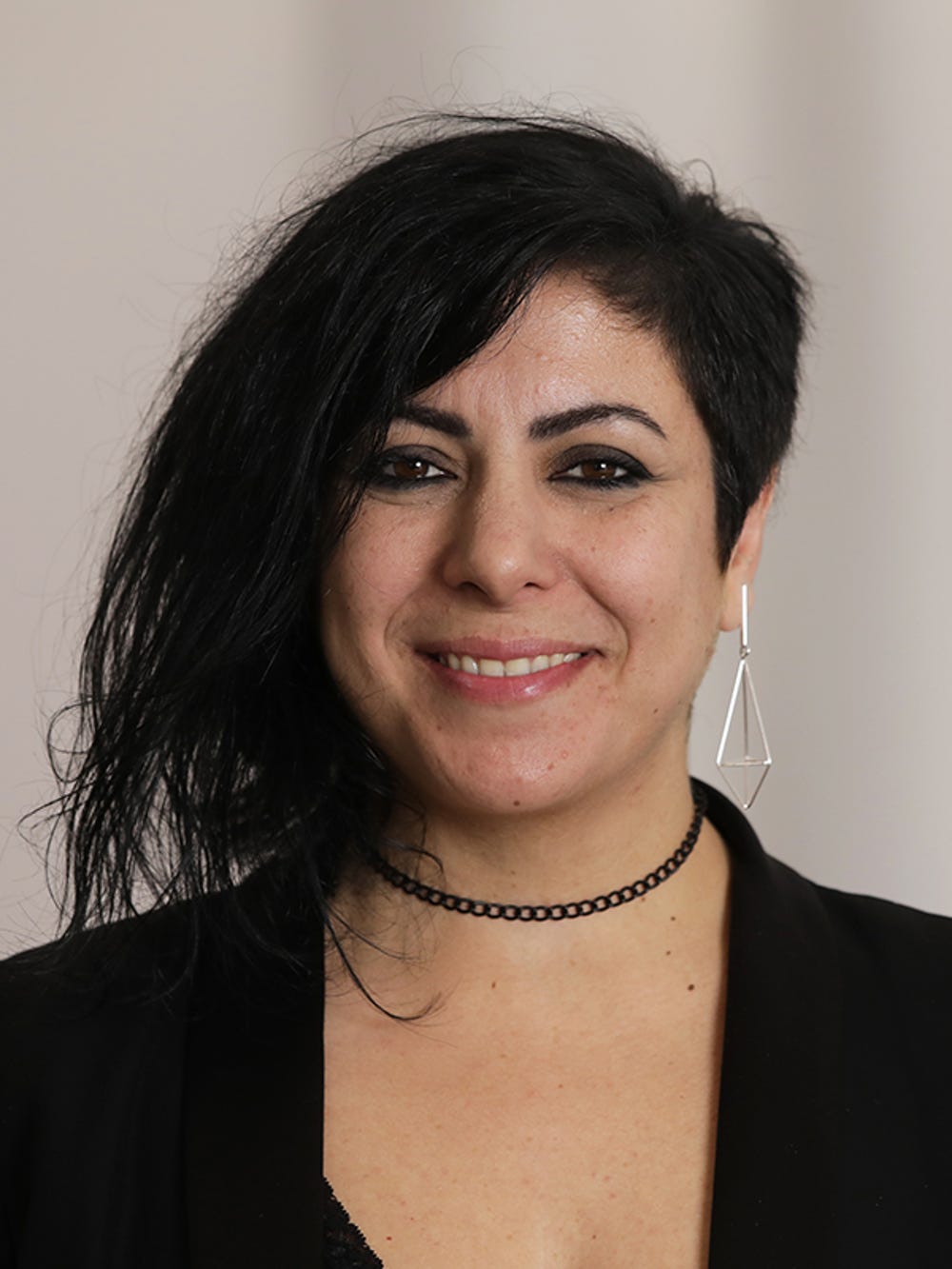
Updated March 2019
When parents fret over the hours their children spend playing video games, they could take a leaf out of Reine Abbas’s book: teach them how to create them instead! With over 15 years in the gaming industry – Reine founded the art department at Nintendo-Digipen’s Lebanese office, created Lebanon’s first indie gaming company in 2008 and was named one of the most powerful (and awesome!) women in gaming in 2013 and 2014 – this self-confessed “hardcore gamer” also had a career in higher education. In 2017 she combined the two to create Spica Tech, an academy that teaches children aged 4 to 16 the skills they need to make video games, from logic and coding to design, storytelling, implementation and testing.
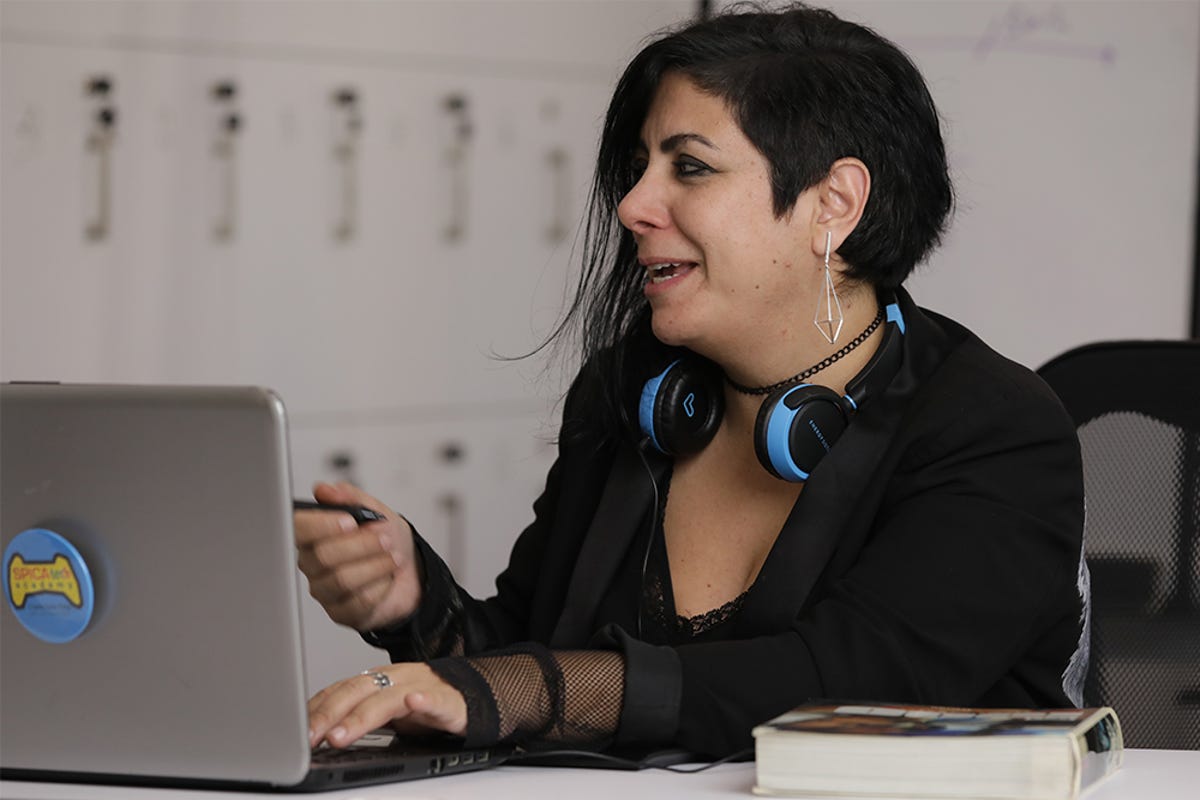
Changing the game
It was Reine’s son, aged just four at the time, who first asked her to teach him. “I organised a workshop for his class,” Reine remembers. “The impact on the kids was amazing! One mother told me her daughter now understood how a washing machine works!” Beyond game development, Spica Tech’s courses impart life skills such as critical thinking, problem solving and project management. Based in Beirut, the academy is mobile, travelling the country to reach as many youngsters as possible with its workshops.
Workshops run for 20 to 30 hours and produce a fully fledged game ready to be played. To date the academy has schooled over 450 children in three languages (French, Arabic and English), created two dozen different games and is gearing up to go online in 2019, where all its games will be posted. Alongside its six permanent instructors, Reine has trained a pool of 20 more to be ready to step in when needed.
The problem with the education system is it’s not fun!

The digital producers of tomorrow
Gaming aside, the programme fosters children’s interest in the crucial Science Technology, Engineering and Mathematics disciplines. “It’s art and science in one workshop,” says Reine, who is setting her sights characteristically high for her business, with a mission to create “over 20 million developers in 20 years.” This, she hopes, will keep talented youth in the region instead of seeking work in the US or Asia. With over 1 billion gamers worldwide, the global industry is worth $138 billion, according to 2018 market figures. That figure rises to 25% in the MENA region, yet it lags far behind in terms of teaching and development. Spica Tech wants this to change: “we want kids to move from digital consumers to digital producers.”
We want kids to move from being digital consumers to digital producers.
Girls will be girls
She also wants to inspire more girls to enter the industry. “Women are grossly underrepresented in this sector” Seeing these figures reflected in the academy’s enrolments, Reine offers special deals for girls and partners with NGOs, such as Girls got IT to offer teaching. A game-changer with a glowing career, Reine can be quite a role model. “In my day it was hard for a Lebanese girl to enjoy her gaming passion,” she muses. “There were only public gaming spaces, filled with boys. I used to dress up as a boy so I could sneak in and play unnoticed!” By promoting girls’ abilities and challenging mentalities, Spica Tech has the ambition to reach parity in all its classrooms.
Women are grossly underrepresented in the gaming sector, I estimate barely 13%. It’s my personal mission to make this change.
